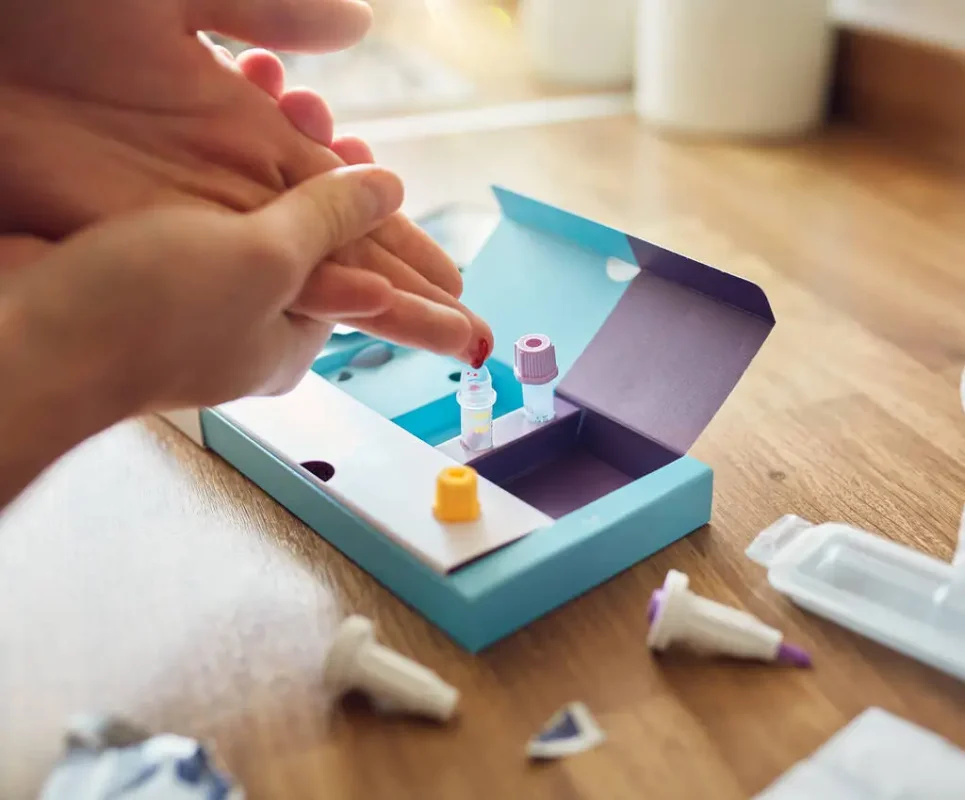The rise of at-home health testing has made diagnostics more accessible than ever—but are these tests as reliable as traditional lab tests? At Paheal, we compare accuracy, convenience, cost, and limitations of at-home vs. lab tests to help you make informed decisions.
1. Accuracy & Reliability
Lab Tests (Gold Standard)
✅ Higher accuracy – Performed by trained technicians with calibrated equipment.
✅ Wider test range – Detects subtle abnormalities (e.g., early cancer markers).
✅ FDA-approved methods – Strict quality controls minimize errors.
At-Home Tests

⚠️ Variable accuracy – Depends on user error (e.g., improper sample collection).
⚠️ Limited scope – Best for basic screenings (glucose, cholesterol, UTI).
⚠️ Regulation gaps – Some kits lack FDA clearance (check packaging).
Paheal’s Verdict:
- For critical diagnostics (e.g., HIV, thyroid disorders), always prefer labs.
- At-home tests work for routine monitoring (e.g., fertility, vitamin D).
2. Convenience & Speed
Lab Tests
⏳ Slower turnaround – 24–72 hours for results (plus appointment time).
📍 Clinic visits required – Challenging for rural/disabled patients.
At-Home Tests
⚡ Faster setup – No appointments; test anytime.
📱 Digital results – Many sync with health apps (e.g., Everlywell, LetsGetChecked).
Paheal’s Tip:
- Need quick answers? At-home UTI/pregnancy tests are ~95% accurate.
- For fasting tests (e.g., glucose), labs reduce user error.
3. Cost Comparison
| Test Type | Average Cost (USD) | Insurance Coverage |
| Lab Lipid Panel | 50–50–150 | Usually covered |
| At-Home Cholesterol | 40–40–80 | Rarely covered |
| Lab HbA1c | 30–30–100 | Often covered |
| At-Home HbA1c | 50–50–120 | No coverage |
Note: At-home tests may seem cheaper but often require follow-up lab confirmation.
4. When to Choose Each
Trust Lab Tests For:
- Complex diagnostics (e.g., genetic testing, hormone panels).
- Legal/employment requirements (e.g., drug tests).
- Symptoms of serious illness (e.g., persistent fatigue, unexplained weight loss).
At-Home Tests Shine For:
- Routine monitoring (e.g., glucose, ovulation tracking).
- Discreet testing (e.g., STIs, COVID-19).
- Baseline health checks (e.g., vitamin deficiencies).
5. Red Flags in At-Home Testing
🚩 No CLIA certification – Avoid uncertified kits.
🚩 Vague results – Reports like “elevated risk” lack actionable data.
🚩 No doctor consult – Reputable brands offer clinician reviews (e.g., Nurx).
Paheal-Approved At-Home Brands:
- Everlywell (general wellness)
- LetsGetChecked (metabolic health)
- Modern Fertility (women’s health)
6. The Future: Hybrid Models
Some labs now offer “at-home collection + lab processing” (e.g., QuestDirect). This balances convenience and accuracy.
Final Takeaways
🔬 For precision, labs win.
🏠 For convenience, at-home tests suffice with caveats.
💡 Always discuss abnormal results with a doctor.

